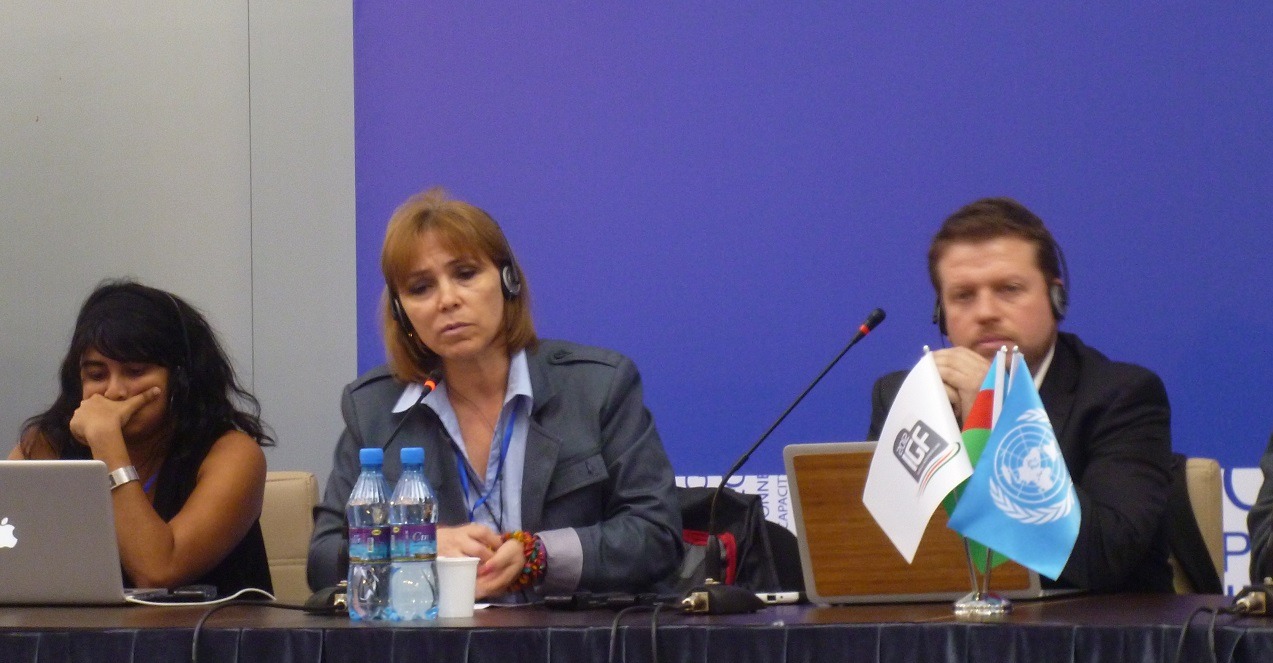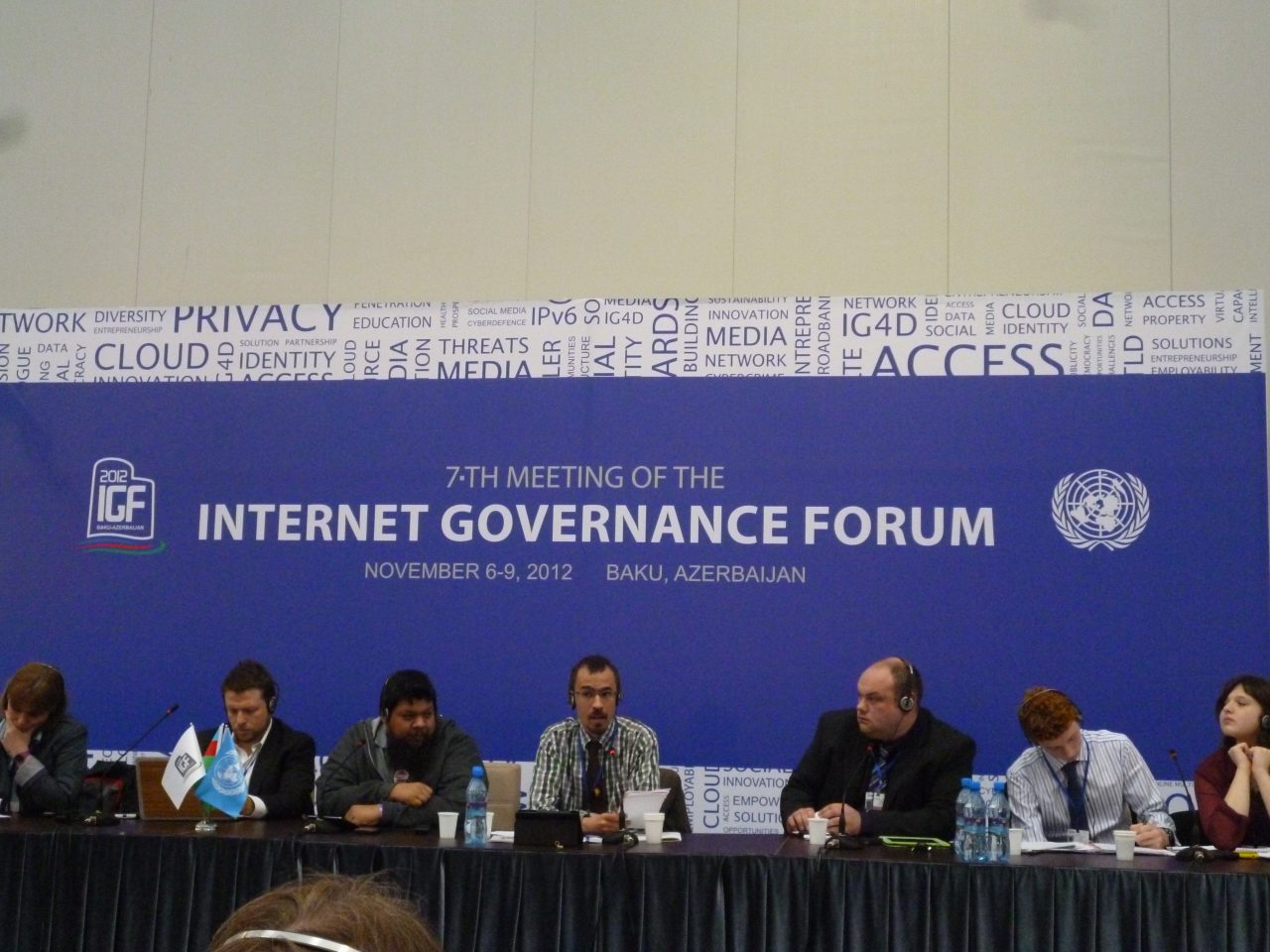On November 8, 2012, I stood in as moderator of an extraordinary workshop for a colleague who was unable to make it to this year’s IGF covering the topic: “The Internet of Humans – Online Human Behaviour & IG Policy Impacts”.
This was an interesting mashup of Sociology, Social Psychology, ICT and Internet Policy dimensions with several of the panelists dipping their toes into more than one of these areas to hammer home their point.
As background to this Workshop, if IG and ICT policy are to be effective, it is clear that we must cultivate a keen understanding of the ever-evolving human behaviours that accompany an Internet of individuals and communities; a human internet that shapes global society in ever more pervasive ways.
This workshop formed an intersection between research on emerging sociological and psychological trends in Global Human behavior on the Internet, and Internet Governance Policy and Practice.
With the evolution of the Internet, there are ever increasing opportunities and challenges for empowered participation regarding issues of Privacy, Security, Freedom of Expression and Openness. Tacit behaviour of everyday users forms a “Net Etiquette” of expectations, roles, responsibilities and rights that surround participation. These individual and community online actions lead to macro-effects on “virtual” and “real world” spaces. Our (cyber)security, freedom and knowledge as a society do not depend on theoretical abstraction but on real world actions.
The multi-stakeholder, global and interactive workshop assembled leading research in Sociology and Psychology of Ihe internet, social mediaphiles, policy practitioners, businesses, government, and youth to hold a fluid discussion with all stakeholders present to:
- Discuss a range of research and perspectives in an attempt to demystify and unload the meanings that are embedded in concepts of Privacy, Trust, Freedom of Expression, Openness and Security; and
- Apply the findings to ICT and IG Policy, and practice by considering:
-
- - measures that can be taken to ensure freedom of expression, access to knowledge and privacy for all stakeholders including Youth;
- – challenges encountered in protecting freedom of expression online Solutions to better empower citizen’s access to information and effective/empowered participation in digital age;
- – “Net Etiquette” and the roles, responsibilities and rights of users as they relate to openness, privacy and security.
The workshop relied on an interactive, dialogue based approach with a primary aim of inclusion. A concrete outcome of this workshop is expected to be the creation a roadmap of next steps in furthering a research and evidence-based ICT and IG policy agenda which, based on the workshop discussions will seek to address the following considerations:
- Use of real names online is desirable but we need to be careful of what is posted online and the law should be balanced in dispensing justice related to speech online and in the physical world.
- Two rights that are neglected online are freedom of assembly and freedom of association. These rights are threatened by surveillance, censorship and erosion of anonymity.
- Need for greater accountability by all stakeholders in what is shared online and generally how one behaves online. As well as the need for govts to understand the issues from a multi disciplinary, multistakeholder approach.
- One approach suggested was to study/understand human behavior first then consider online behavior
- Some questions raised include what steps are being taken by Policymakers /regulators to understand the behaviors are taking place on line and How do regulators determine what policies need to be implemented to address online behavior? It was recommended to use different specialist to analyzed this issue (experts on behavior, sociologist, technologist in addition to lawyers).
- Privacy is an issue integrally related to security: users’ concerns revolves around non-authorized access to their systems or devices, identity theft, hijacked of their accounts, access to their financial information and unauthorized used of payment instruments.
- Keeping user information safe and available is top priority for Google. It is important to ensure strong security and privacy protection by providing easy-to-use security and privacy tools to help users to protect themselves against spam, phishing and malware and to avoid unauthorized access to their accounts and personal information.
- Users’ behavior alters traditional legal institutions: for example the raising need for users to have content available on demand, when, where and in the format they want is affecting traditional models of copyright and there is an increasing need that those models start to became more resilient to users’new demands.
- Consideration needs to be given for how ICTs have changed our respective behaviours e.g constant use of email, impact on interpersonal communication skills (face to face)
- There is a large population of users that see the internet as a source of information, but are unaware of the risks associated with the use of the internet. There is a need for greater awareness and capacity building in the area of privacy, security and ethics.
- Laws need to be in place address cybercrime.
- Based on an emprical study (by ChildNet) of 800 youths on 6 different continents, the following findings were pertinent:
- – Youth are more inclined to be open if they were anonymous, Anonymity provides security, protection and allows them to be more expressive.
- – One drawback was that aspects of communication (body language ) is lost, found it difficult to identify emotions even with the use of emoticons
- – Sometimes their own freedom of expression had to be curtailed out of concern for their reputation
- – The type of communication and the openness of it depends on the target audience

